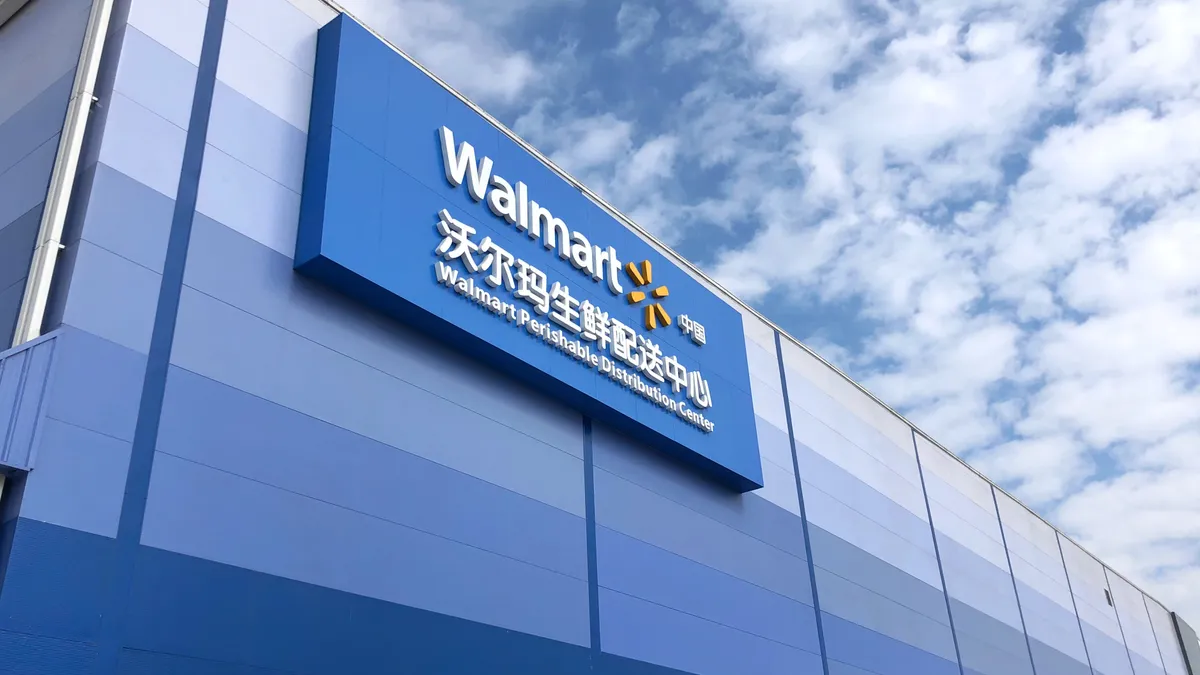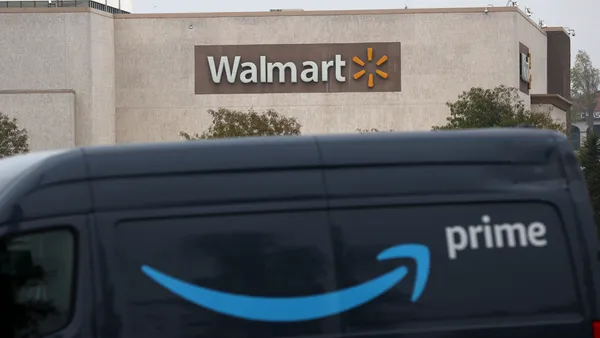Dive Brief:
- A 1 million-square-foot warehouse in Dongguan, China, is part of 8 billion yuan ($1.16 billion) Walmart plans to invest in logistics in China, Ryan McDaniel, the senior vice president of Walmart China's supply chain, announced at a press event and in a company post on the social media platforms WeChat and Weixin.
- McDaniel spoke at a press event to announce the BRC food safety certification of the facility, which is outfitted for fresh, frozen and ambient storage. The Walmart Huanan Fresh Food Distribution Center, which opened in March, serves more than 100 stores in the Guangdong and Guangxi regions and can ship up to 165,000 boxes per day.
- Walmart will build 10 or more additional warehouses in China in the next 10-20 years, a Walmart spokesperson told Supply Chain Dive.
Dive Insight:
Walmart is taking big swings in China, but this facility represents Walmart's largest investment there since it entered the market 23 years ago, according to the company. The new facility will reach slightly less than one-quarter of Walmart's 443 store network in the country, which includes small format Walmart stores, Sam’s Clubs and Walmart supermarkets.
China's sheer size demands investment to compete, but beyond scale, China's grocery market is extremely competitive and shoppers have converted to online grocery shopping at much faster rates than in the U.S. Same-day delivery is expected in cities.
Walmart has partnered with JD.com for the last three years and the two expanded their partnership into food delivery earlier this year with Walmart providing the back-end fulfillment to JD.com's front-end e-commerce platform. Walmart and JD.com also invested $500 million in Chinese delivery provider Dada-JD Daojia last year.
With Monday's announcement, the company is drawing attention to its food safety prowess as well as its growing logistical might. Walmart's emphasized the technology in the new facilities that will ensure the different storage temperatures remain constant — IoT applications monitor the temperature of equipment like forklifts and the facility as a whole, the company noted in its WeChat post.
Additionally, Walmart launched a proprietary blockchain-backed food traceability platform aimed at ensuring food safety in China last month, which currently tracks 23 product lines. It will track 100 product lines across 10 categories by the end of the year according to a press release.














